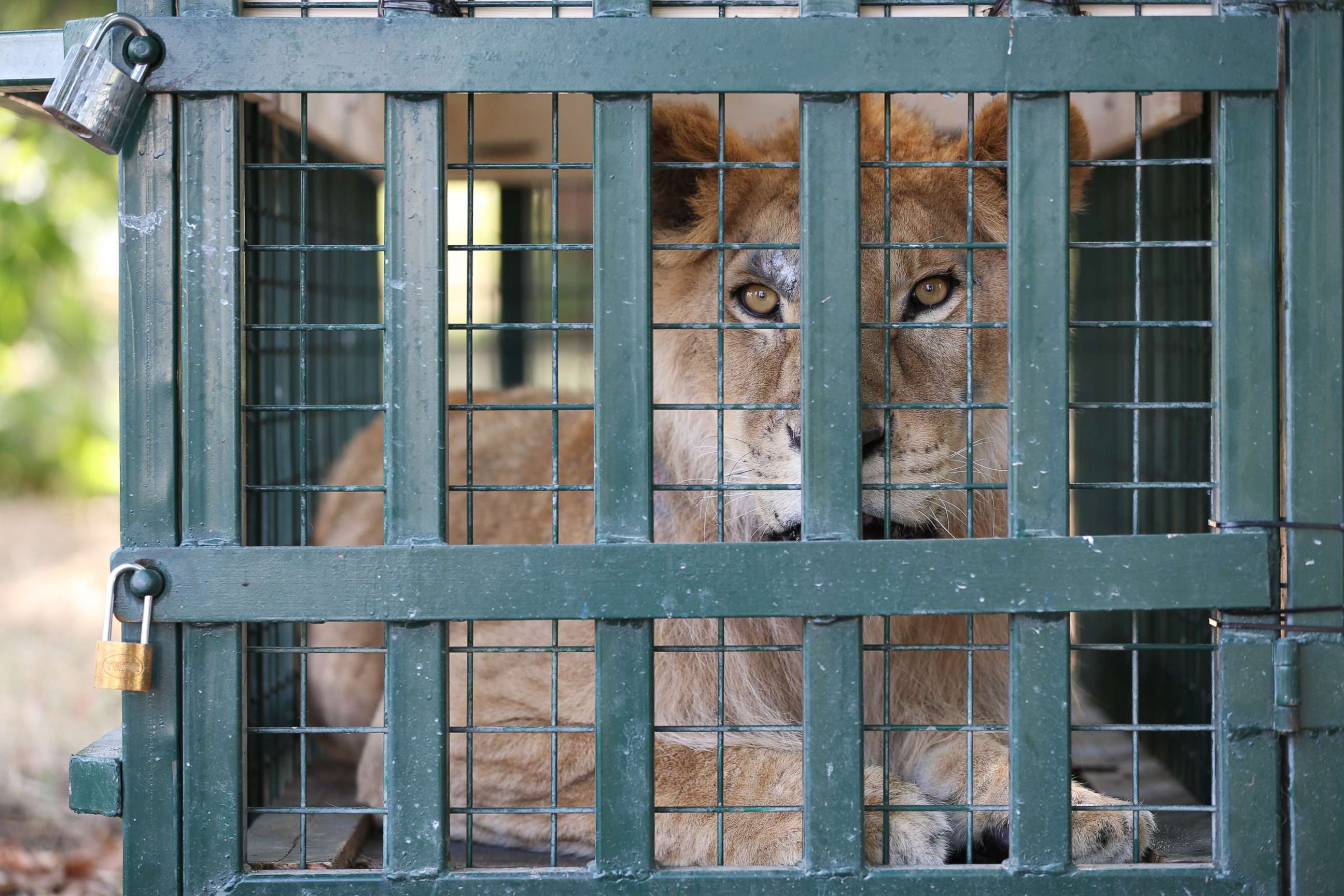9 starving animals rescued from abandoned zoo in war-torn Aleppo, more remain
Lions, tigers, bears and hyenas on the brink of starvation were evacuated.
— -- Nine animals on the brink of starvation have been rescued from an abandoned zoo in war-torn Aleppo, Syria. But more animals remain trapped.
Animal welfare charity Four Paws International said it launched the high-risk operation last Friday and coordinated with security experts to evacuate three lions, two tigers, two Asian black bears and two hyenas from the amusement park Aalim al-Sahar, or "Magic World," with permission from the owner, who had fled to the United States five years ago.
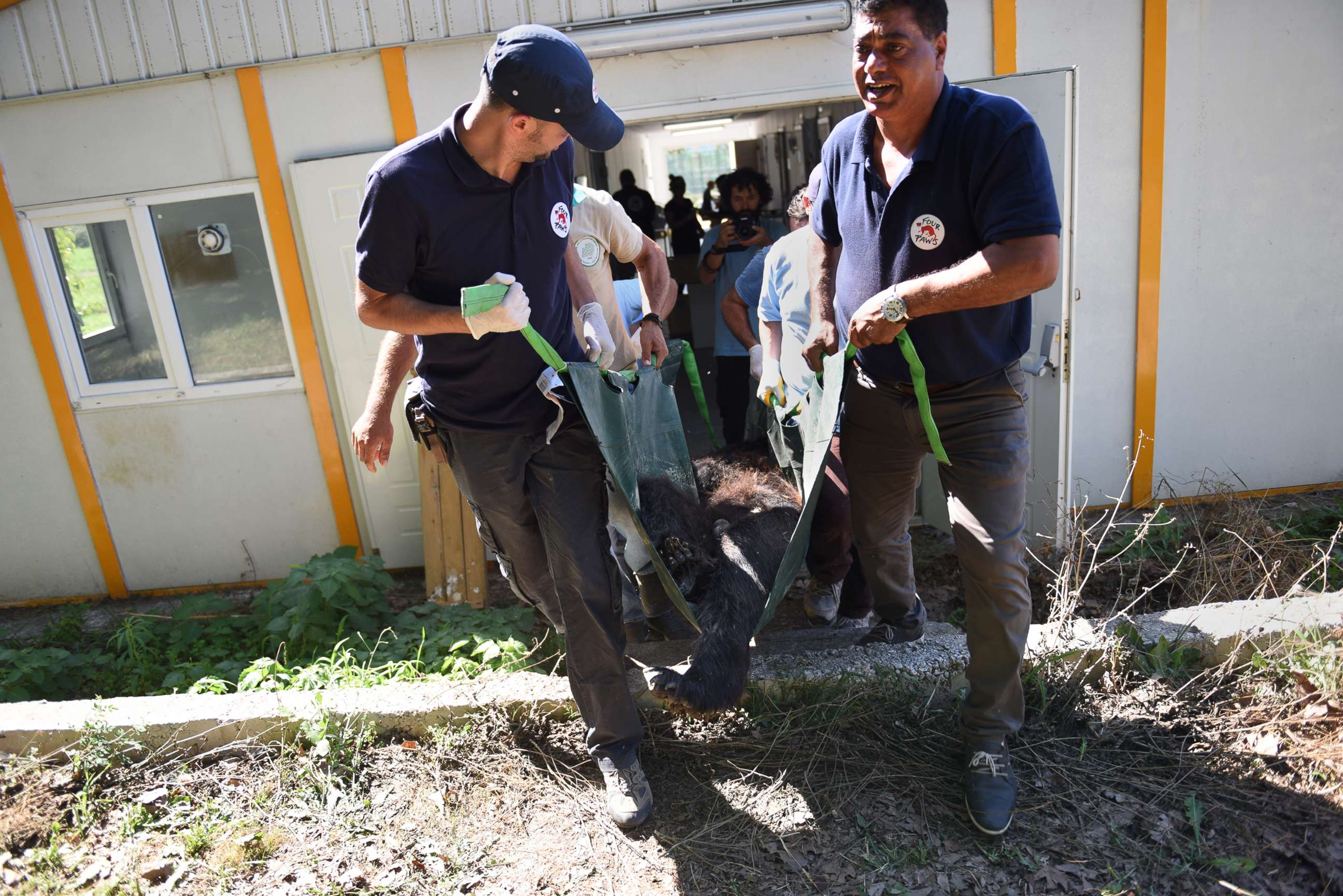
After the Syrian civil war began in 2011 and fighting intensified in Aleppo, the zoo's caretakers were forced to abandon its inhabitants, who are locked in their barren cages and unable to escape the conflict around them. The zoo itself has been severely damaged from shelling, and several animals have either died in the crossfire or starved to death, according to Four Paws veterinarian Amir Khalil who led the dangerous mission.
"The ongoing war has taken its toll on the animals. The lack of water, food, and veterinary care has left the animals physically and psychologically traumatized. Several animals were killed by severe bombings. There was no way for them to escape from this deadly trap,” Khalil said.
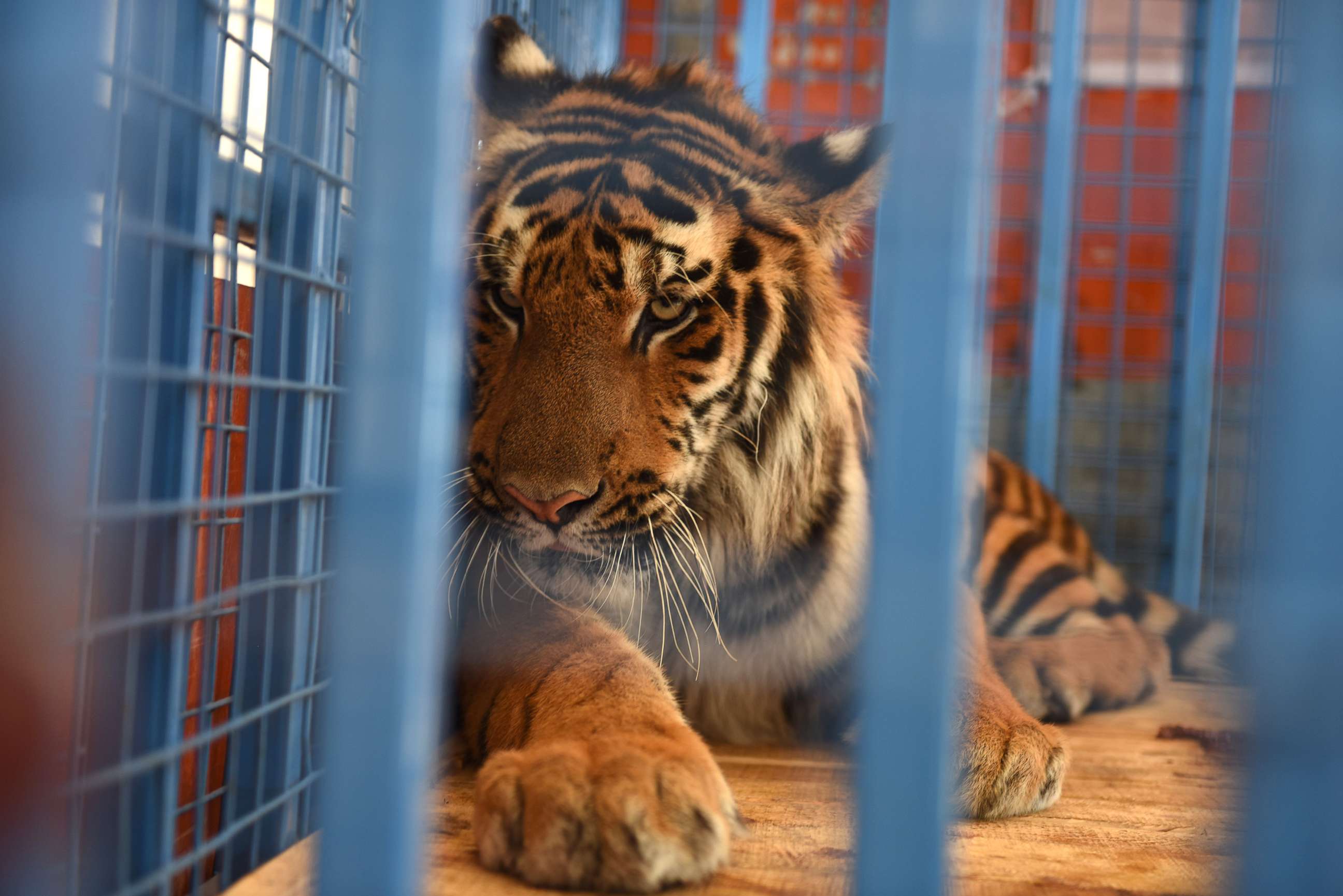
Aleppo is now under government control. But just last year, Aleppo was the battlefield of a months-long siege as government forces and opposition groups fought for control over the eastern half of the divided city.
Today, portions of the city devastated by the conflict are still far from recovery.
“The ever-deteriorating situation of the animals worried us. With our mission, we want to spread the message that humanity cannot be divided and that these suffering animals deserve to be heard and seen," Khalil added. "Also, wild animals, such as bears and big cats, trapped in desolate enclosures can quickly pose a threat to humans.”
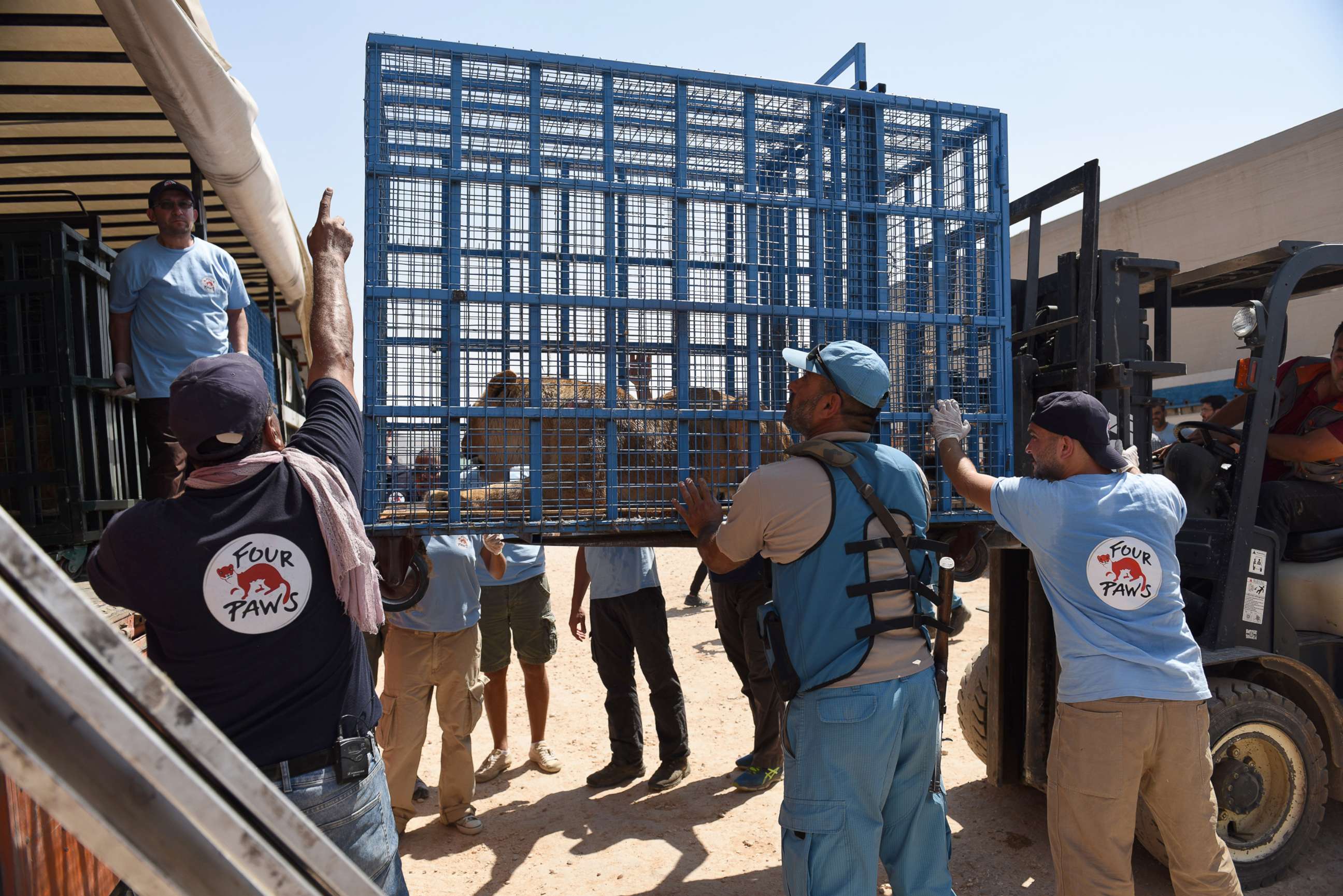
Khalil, along with a team of local veterinarians and security advisers, entered the derelict zoo amid the ongoing conflict and loaded the nine animals into cages on transport trucks. The animals were emaciated, dehydrated, exhausted and traumatized, with some suffering from minor wounds, according to Four Paws.
Khalil and his team then hastened the trucks across the Syria-Turkey border where they met other team members. The animals received basic medical care, water and food during their journey, which has been supported by Turkish animal welfare activists.
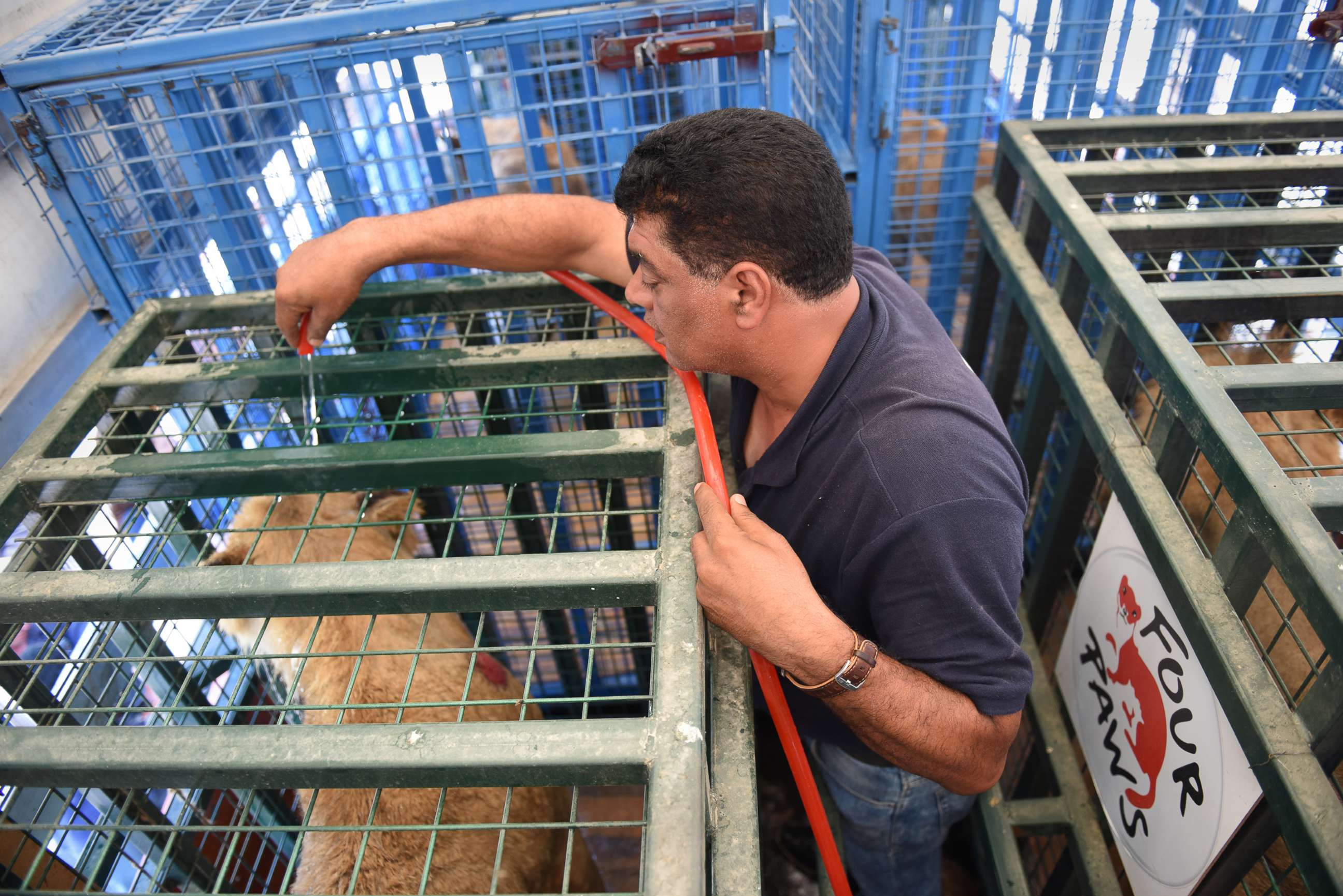
After a 24-hour road trip through Turkey, the animals arrived safely at an animal protection center in Karacabey, some 70 miles west of the city of Bursa, according to Four Paws.
"The journey across Turkey was a tiring affair for all of us. Due to the extreme heat, we had to stop every three to four hours to check on the conditions of the animals and provide them with water,” Khalil said. “We are thrilled that we were able to bring the animals safely to their first destination.”
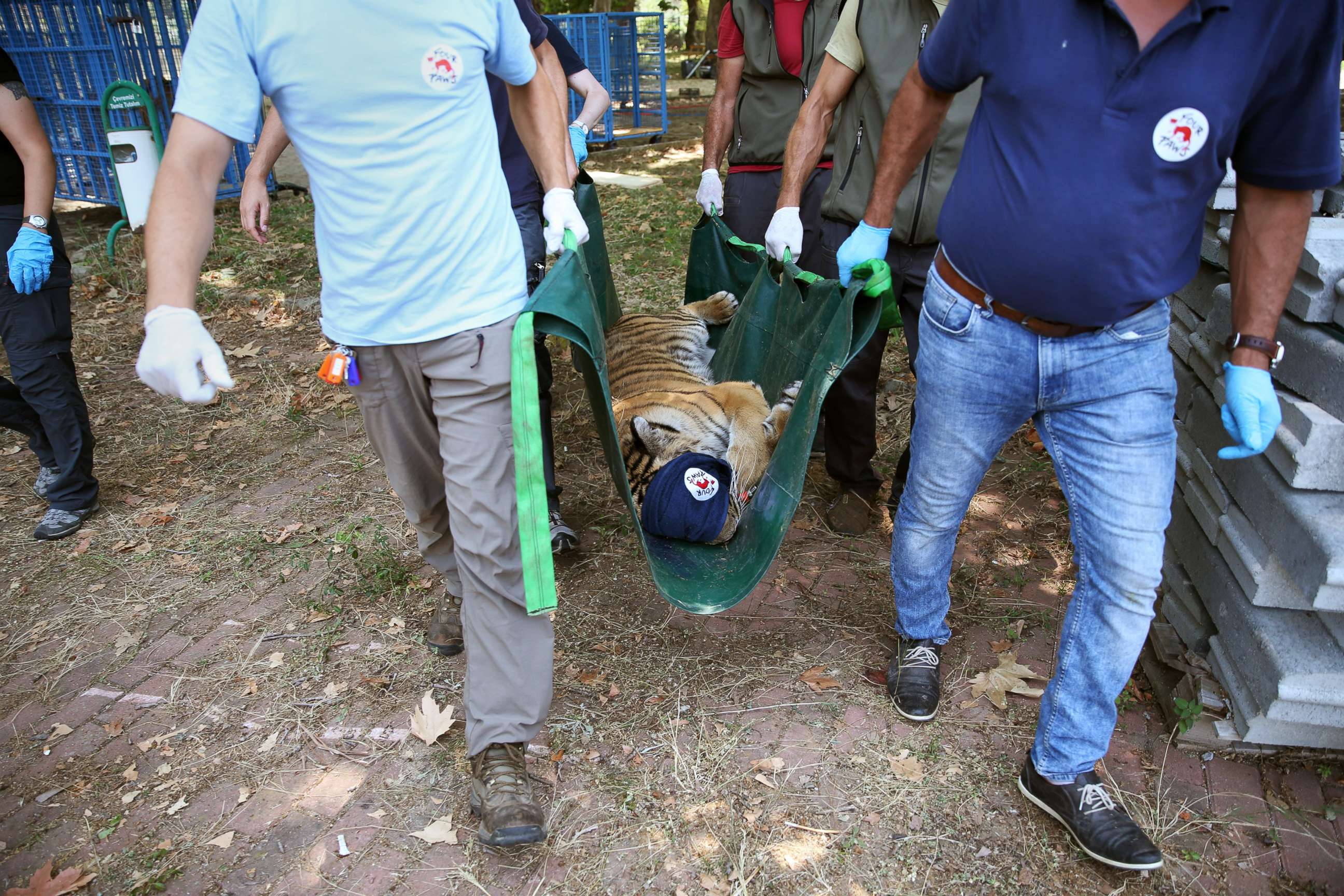
While at their temporary home in Karacabey, the animals will receive medical treatment and comprehensive examinations this week, including blood tests, ultrasounds and eye checkups. Once their conditions improve, each animal will be relocated to a permanent, species-appropriate home in a sanctuary, according to Four Paws.
"For the first time, these animals are receiving thorough medical examinations by experts working with sophisticated equipment,” said Frank Göritz, one of the local veterinarians supporting the Four Paws team.
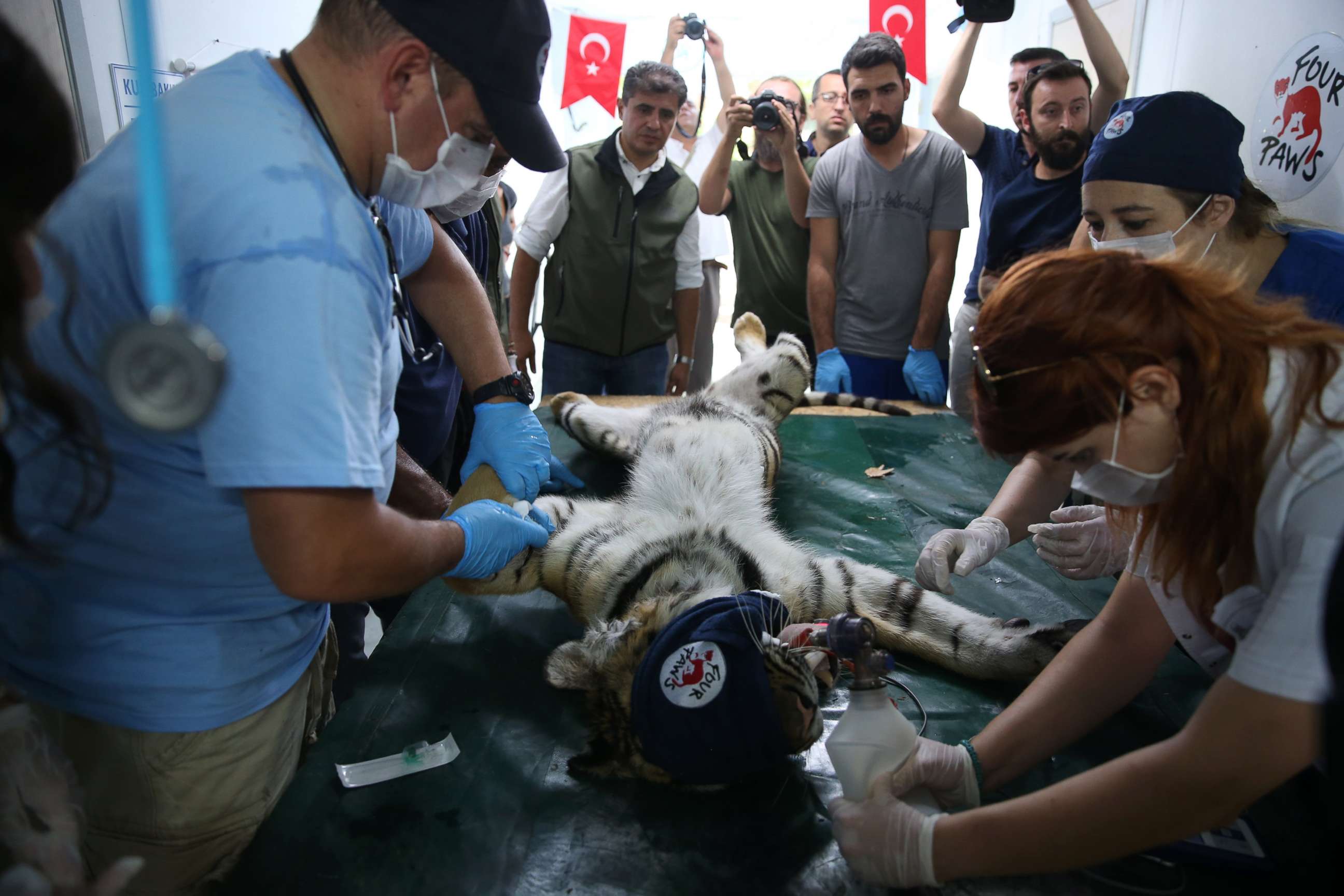
This is not the first time Khalil, a 52-year-old Egyptian native, has helped animals in conflict or disaster zones. He is specifically trained to do so. He saved animals at Libya’s Tripoli Zoo after the 2011 uprising that toppled Muammar Gaddafi and rescued animals from Iraq’s Baghdad Zoo after the 2003 U.S. invasion.
In August 2016 he and his rescue team evacuated all 15 remaining animals at the Khan Younis Zoo, dubbed the worst zoo in the world, in the besieged Gaza Strip. After receiving veterinary attention, the animals were transported to sanctuaries in Jordan, South Africa and elsewhere.
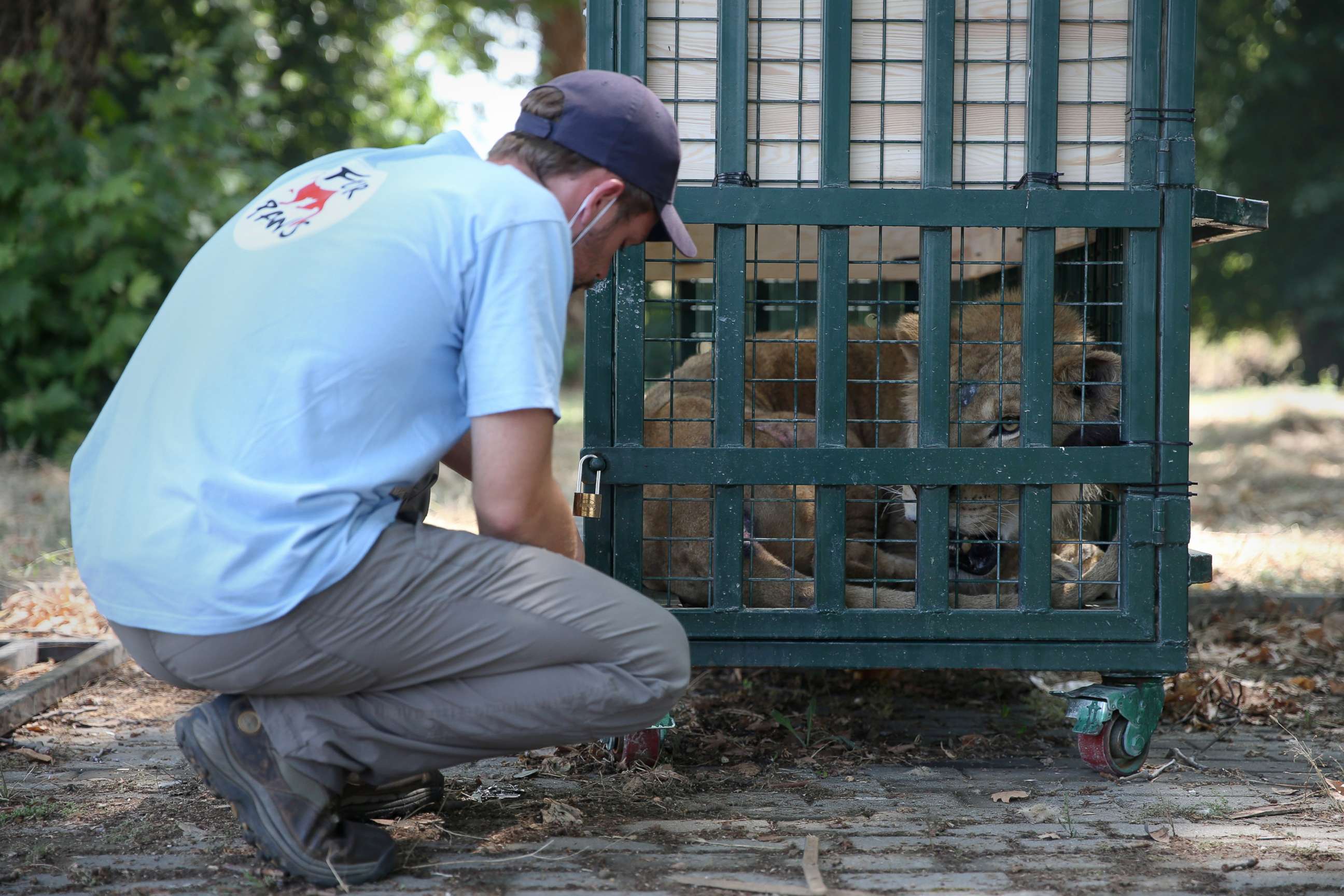
In February, Khalil led a rapid response team from Vienna-based Four Paws to rescue the last two surviving animals from the Montazah al-Morour Zoo in Mosul, the site of a brutal struggle since ISIS took over the Iraqi city in 2014.
On July 10, Iraqi authorities declared "total victory" over the terrorist group in Mosul.
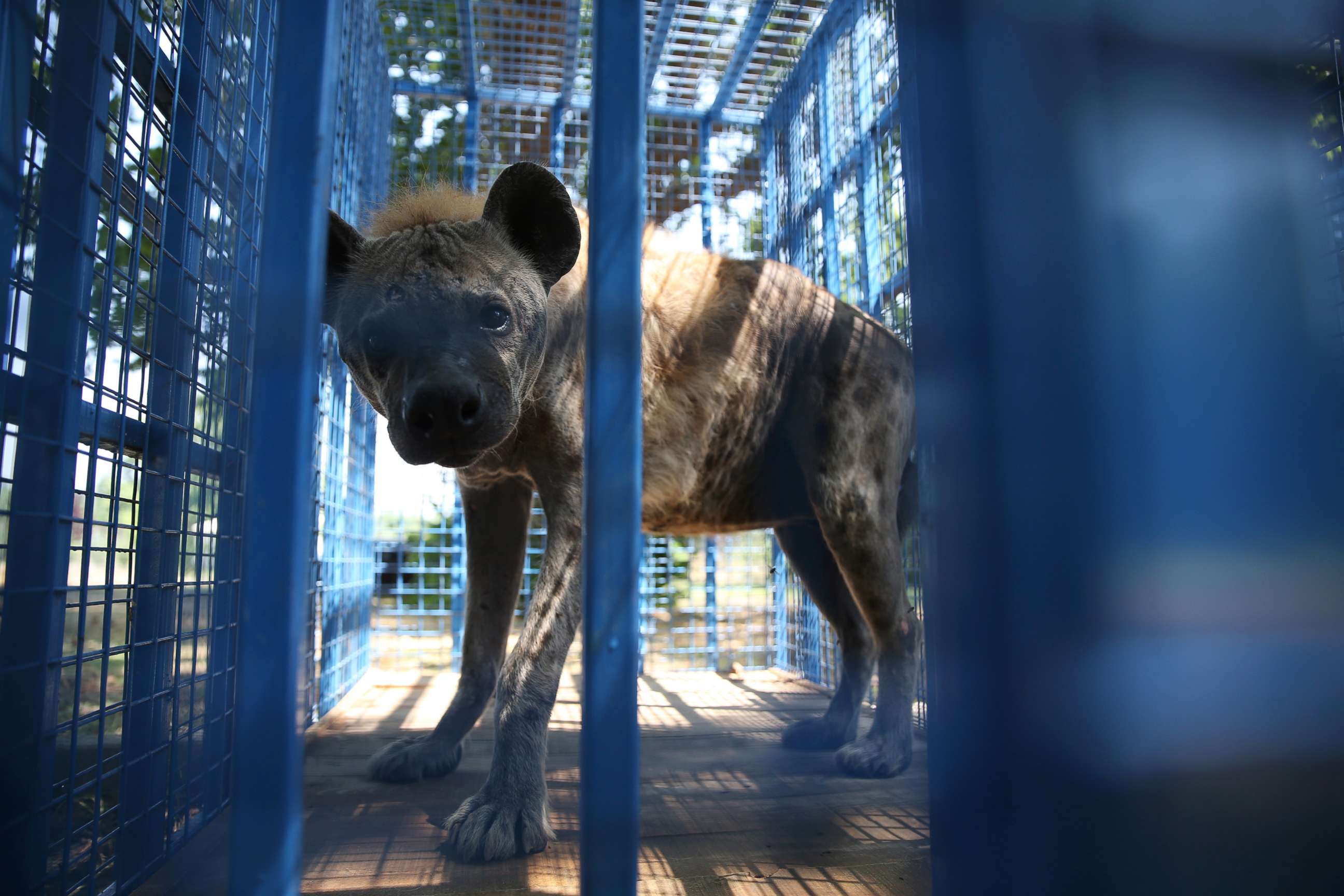
For the other surviving zoo animals still trapped in Aleppo, Khalil said he is determined to return with his team soon to evacuate them, too.
“We are currently working hard with our partners to get the remaining animals out of the zoo," he said. "We are not giving up on the remaining animals."
